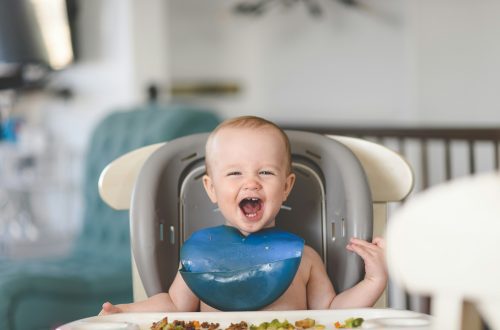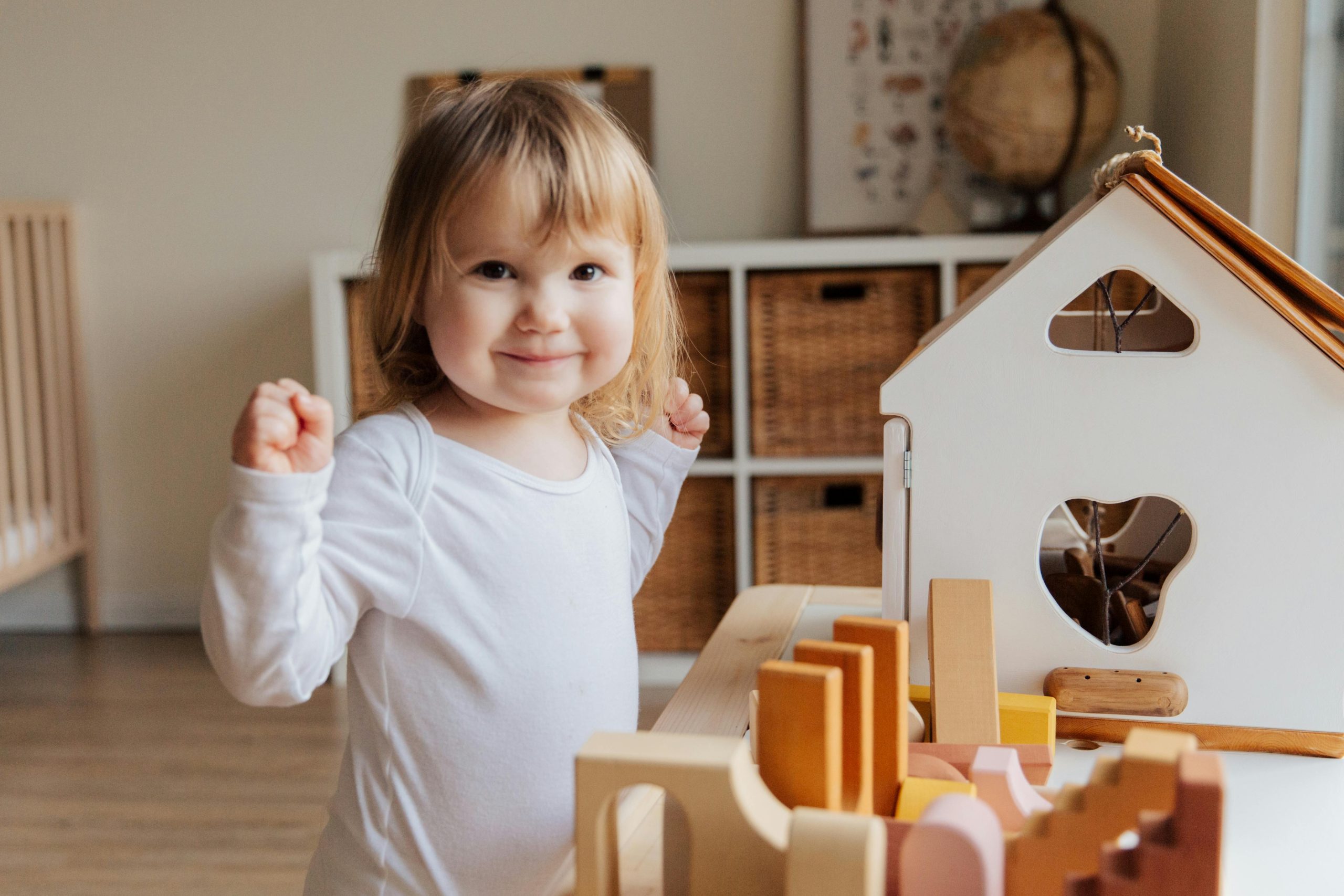Need a comforter for your newborn? A comforter for newborns can help soothe your baby, improve sleep, and offer emotional support. This article will guide you through why a comforter for a newborn is important, the different types, and top picks for your little one. Start here.
Key Takeaways
- Comforters provide essential emotional support and help enhance sleep quality for newborns, benefiting both babies and parents.
- Choosing the right comforter involves considering material, size, design, and safety standards, ensuring comfort and security for your baby.
- Personalised comforters make special gifts, offering both practicality and sentimental value for new parents.
Why Newborns Need Comforters
New parents often worry about their baby’s sense of security and sleep quality. Comfort items, such as comforters, can significantly help. They provide a sense of security and companionship, aiding babies in falling asleep and supporting their emotional development.
Comforters assist newborns in self-soothing and resettling during the night, encouraging better sleep patterns. This helps babies fall back asleep independently, which can be a lifesaver for parents frequently waking up at night.
Beyond sleep, comforters offer reassurance and comfort during stressful times. The familiar scent of a comforter, imbued with the parents’ smell, can soothe an infant, helping to establish a calming sleep association.
A comforter acts as a reliable companion for your baby, providing emotional support and a sense of safety during early development. This simple tool can greatly enhance your baby’s nightly routine.
Types of Baby Comforters
Baby comforters come in various types, each with unique benefits to meet different needs and preferences. Plush blankets, for example, offer exceptional softness and warmth, making them perfect for cuddling during colder nights.
Muslin cloths are known for their lightweight and breathable properties, making them another excellent choice. These versatile comforters can be used for swaddling, as covers, or burp cloths, adding practicality to your baby’s routine. Their breathability ensures comfort throughout the year.
Fleece blankets are ideal for keeping babies warm during colder weather. They offer excellent insulation while remaining lightweight, ensuring your baby stays snug without overheating. Each comforter type has unique advantages, giving parents the flexibility to choose the best option for their baby.
Features to Look for in a Newborn Comforter
Selecting the perfect comforter for your newborn involves considering various features to ensure it meets all your baby’s needs. Key aspects to focus on include the material and softness, size and design, and adherence to safety standards.
Each of these features plays a crucial role in providing comfort and security for your baby.
Material and Softness
The material of a newborn comforter is crucial. Opt for hypoallergenic fabrics like organic cotton and bamboo, which are gentle, breathable, and regulate temperature. These materials safeguard your baby’s delicate skin, minimising allergic reactions.
Plush toy comforters provide soft textures that help establish sleep patterns and create a cosy sleeping environment. They are made with safety in mind, using soft, breathable materials that are gentle on a newborn’s sensitive skin.
Muslin cloth comforters are also highly praised for their versatility and lightweight properties, making them suitable for various uses throughout the day.
Size and Design
Selecting the appropriate size and design for a comforter ensures safety and practicality. Newborn receiving blankets typically range from 18 to 36 inches, catering to their size and preventing suffocation. Smaller security blankets suit infants, while larger crib blankets are better for toddlers.
Design is another important factor. Comforters should be breathable and lightweight to ensure a comfortable sleep for newborns. A small, manageable comforter is easier for little hands to handle, making it a cosy, practical companion.
Safety Standards
Safety is paramount when selecting a comforter for your newborn. Ensure comforters comply with safety regulations like CE or UKCA certification. Avoid those with small parts that could pose choking hazards and use crib blankets cautiously for babies under one year to prevent suffocation.
Meeting safety standards offers peace of mind for parents, ensuring a secure and hazard-free sleeping environment for their baby. Always prioritise safety certifications and guidelines when choosing a comforter.
Personalised Baby Comforters
Personalised baby comforters are gaining popularity for their unique appeal and sentimental value. Many feature the child’s name or a special message, making them cherished keepsakes. Customisation options include various fabrics and colours, enabling parents to create a comforter that matches their baby’s personality and nursery theme.
Some brands offer the option to add a meaningful quote alongside the child’s name, adding extra sentimentality. Personalised baby blankets are ideal gifts for new parents due to their practicality and emotional significance. Complementary items like plush toys or baby books can enhance the overall gift experience.
Top Picks for Newborn Comforters
With so many options available, choosing the best comforter for your newborn can be overwhelming. To assist you, we’ve compiled a list of top picks that combine softness, breathability, and safety, promoting comfort and security for your baby.
Best Plush Toy Comforters
Plush toy comforters are cherished for their cuddly textures and comforting role during sleep. They usually feature soft fabrics and toys that double as cuddle buddies, providing warmth and comfort. Designs often incorporate sensory elements like taggies and teethers, enhancing developmental stimulation.
Customer reviews often highlight the quality and comforting nature of plush toy comforters, making them popular among parents. These comforters offer comfort and promote sensory exploration, crucial for a baby’s developmental growth.
Best Muslin Cloth Comforters
Muslin cloth comforters are praised for their exceptional softness and versatility. Muslin fabric softens with each wash, becoming more comfortable over time. These comforters are ideal for swaddling or as a light covering, offering a breathable and lightweight option for year-round comfort.
A 30×30-inch receiving blanket suits newborns up to six months, while a 36×36-inch blanket is better for older infants. This size flexibility ensures muslin cloth comforters can grow with your baby, making them a practical and long-lasting choice.
Best Fleece Blanket Comforters
Fleece blanket comforters are popular for their warmth and comforting textures, ideal for keeping babies cosy during colder months. They are lightweight yet provide excellent insulation, ensuring babies stay snug without overheating.
The exceptional warmth and softness of fleece blanket comforters create a cosy environment, helping newborns feel secure and comfortable. These qualities make fleece blankets a popular choice for parents wanting to keep their babies warm and content.
How to Introduce a Comforter to Your Newborn
Introducing a comforter to your newborn involves simple steps to ensure safety and bonding. Place the comforter between you and your baby during feeding sessions to absorb your scent, making it a familiar and comforting presence.
Ensure the comforter is free from small parts that could pose choking hazards and complies with safety regulations to minimise suffocation risks. Keeping the comforter close to you or wearing it for a few hours before introducing it to your baby can help infuse it with your scent, enhancing its comforting qualities.
Care and Maintenance of Baby Comforters
Proper care and maintenance ensure baby comforters remain safe and hygienic. Many plush comforters are machine washable for easy cleaning, which is crucial for hygiene. Use unscented, hypoallergenic laundry detergent to prevent skin irritation in babies.
Wash baby comforters every two weeks and take special care to avoid soiling. Ensure baby bedding is completely dry before storing to prevent mildew growth.
Benefits of Using a Soother at Bedtime
Before:
Using a soother at bedtime offers several benefits, including helping a baby soothe themselves back to sleep. Some studies suggest that offering a soother at bedtime may reduce the risk of sudden infant death syndrome (SIDS). Pacifiers can stabilise a baby’s breathing and heart rate during sleep, potentially protecting against SIDS.
After:
Using a soother at bedtime offers several benefits, including:
- Helping a baby soothe themselves back to sleep
- Potentially reducing the risk of sudden infant death syndrome (SIDS)
- Stabilising a baby’s breathing and heart rate during sleep
Pacifiers may keep a baby’s airway open during sleep by positioning the tongue and allowing better breathing space. Soothers are particularly beneficial in unsafe sleep environments, such as when a baby sleeps on their stomach or shares a bed.
Choosing the Perfect Comforter as a Gift
Selecting the perfect comforter as a gift involves considering safety, hygiene, and aesthetics. Personalised comforters, featuring custom embroidery or printing, are thoughtful gifts for baby showers or birthdays. Prioritise materials like fleece, muslin, or wool for optimal comfort and durability.
The design of a baby comforter should include soothing colours and patterns that appeal to both baby and parents. Baby comforters from WahooGifts offer a unique and memorable gift option, becoming a cherished keepsake for infants.
Summary
In summary, choosing the right comforter for your newborn involves considering factors such as material, size, design, and safety standards. Personalised comforters make thoughtful gifts that offer both practicality and sentimental value. By selecting a comforter that meets these criteria, you can provide your baby with a comforting and secure sleeping environment, ensuring their well-being and peace of mind for parents.
Frequently Asked Questions
Why do newborns need comforters?
Newborns need comforters for a sense of security and to help them sleep better. The familiar softness and scent of a comforter can greatly support their emotional development.
What materials are best for a newborn comforter?
Using hypoallergenic materials like organic cotton, bamboo, and muslin for a newborn comforter is a wonderful choice, as they are soft, breathable, and kind to delicate skin. You’ll feel great knowing your little one is cosy and comfortable!
How can I introduce a comforter to my newborn?
Introducing a comforter to your newborn can be a lovely bonding experience! Start by placing it near your baby during feeding times to transfer your scent, ensuring it’s safe and free from hazards.
How often should I wash my baby’s comforter?
It’s best to wash your baby’s comforter every two weeks to keep it hygienic and safe. Using unscented, hypoallergenic detergent will help avoid skin irritation, ensuring your little one stays comfortable and healthy.
What are the benefits of using a soother at bedtime?
Using a soother at bedtime can encourage self-soothing in babies and may lower the risk of sudden infant death syndrome (SIDS). It’s a comforting tool that promotes better sleep for both baby and parents.












I remember having so many of these for my son, he always had a favourite one.